#judeo-christian
Text
Before you say “religion”...
Take a moment and ask yourself a few questions:
- Do you mean just 1 religion?
- Do you know enough about the all worlds religions to make a potentially harmful generalization about all of them?
- Are you making assumptions about other religions based off of your experience with one religion?
- Are you making assumptions about other religions and cultures based on your limited experience with a single person or group of people from said religion or culture?
- Are you taking out your valid frustrating, anger, hurt, and pain with one religious group on people who have nothing to do with it by making a generalization?
If you don’t actually mean the every single one of the vast, diverse, multi-faceted religions in the world, don’t make a blanket statement and list the one(s) you mean specifically. This also goes for using ‘grouping’ labels that do not apply, like Abrahamic, etc.
5K notes
·
View notes
Text
list of abrahamic terms and how they are used
monotheistic: describing a religion which believes in only one God. examples: judaism, islam, jehovah’s witness.
trinitarian monotheistic: describing a religion which believes in only one God, who also exists as three Persons, typically described as the Father, the Son, and the Holy Spirit. examples: Catholic Christianity, Orthodox Christianity, and most mainline and evangelical christian sects. some trinitarian monotheistic religions also believe in “Saints”, but these are merely particularly virtuous humans and are not worshiped (though they may be prayed to; there is a distinction between prayer and worship i may get to later).
monolatrous: belief in many gods, but only one that is worthy of worship. example: mormonism.
henotheistic: belief in many gods, but one is held up as more worthy of worship than others. example: early Yahweism (extinct for about 3200 years now).
Dualism: describing a religion that believes in two gods; usually a good God who is actively worshiped, and a weaker evil god who is rejected. All other “divinities” are typically emanations of these two gods, like rays of sunlight emanating from the sun. example: zoroastrianism
Polytheistic: describing a religion that believes in many gods that are all worthy of worship. there are no major polytheistic abrahamic groups, despite accusations that often fly this way or that between groups.
Abrahamic: describing a religion that shares a common cultural mythos with Yahweism, Judaism, Catholic and Orthodox Christianity, and Islam. Examples: All Jewish, Christian, and Muslim religions.
Judeo-Christian: describing a religion that claims direct continuity with second-temple judaism, rahter than a separate revelation tangentially related to it. Examples: Judaism, Catholic Christianity, Orthodox Christianity, all mainline protestant christian sects, most other protestant sects.
Christian: Describing a religion which believes that Jesus is the actual Son of God and worships Him as such. Examples: All self-described Christian groups except Jehova’s Witnesses and Mormons.
High-Church Christian: Describing christian groups which retain the ritual practices and beliefs from the early church (circa 30 AD). Examples: Catholic Christianity, Orthodox Christianity, Coptic Christianity, Anglicanism, Episcopalianism, and Lutheranism.
Low-Church Christianity: Describing christian groups which reject all aspects of early christianity, instead opting to adopted a more free-form individualistic form of devotion more reminiscent of germanic or norse paganism. Examples: most other forms of christianity.
i may add to this post later.
#christian#christianity#religion#faith#judeo-christian#abrahamic faiths#muslim#abrahamic#jewish#judaism#terminology#history#catholicism#catholic church#high church christian#low church christian#orthodoxy
20 notes
·
View notes
Photo


Dumb gay demon (real) (not clickbait).
My design of Azazel from the book of Enoch because of course I’d hyperfixate on a goat demon associated with makeup and jewelry.
#azazel#demon#fallen angel#my art#artists on tumblr#book of enoch#judeo-christian#gay artist#gay art#gnc men
37 notes
·
View notes
Note
Don't you find it weird that the only reason you're pro-Israel and anti-Hamas is because of your religion, the one in which you worship a god who drowned the entire world because its angels fucked humans, and demands that people fear it, and also one that raped a teenage girl and then maxx-terminated their kid?
You know you Pro-Palestine people are like reddit atheists really unintentionally bigoted and proud of it. Seriously, if you call Jesus' birth rape then I don't know how to respond to your ignorance.
#christian#jewish#judeo-christian#christianity#judaism#God#God is love#God Is Love#God Is Light#Yahweh Is Love#Yahweh Is Light#yahweh#israel#pro-israel#talmund#bible#pro-bible#pro-talmund#pro-Jewish#Israeli lives mater#Israel solidarity#pro israel#i stand with israel#israel lives matter#pro zionism#pro-zionism
4 notes
·
View notes
Text
The God of the Bible and Zeus of Greek mythology.
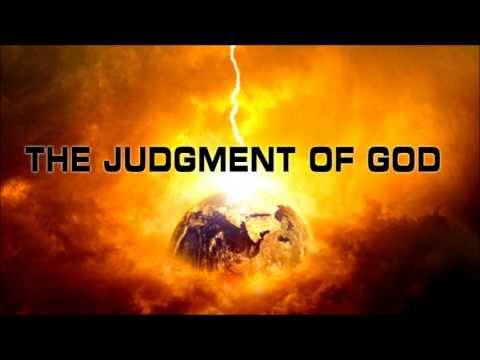
View On WordPress
0 notes
Photo

On Sanctification & The Continual Struggle With Sin - ON SANCTIFICATION & THE CONTINUAL STRUGGLE WITH SIN (on Wattpad) https://www.wattpad.com/1383224600-on-sanctification-the-continual-struggle-with-sin?utm_source=web&utm_medium=tumblr&utm_content=share_reading&wp_uname=ValerieLynnStephens&wp_originator=PGeIBuaAwiKQdnF9JInS73sX%2B0AIMaqghwebaqn2fWiBvTNhlfk3q1uhg1rsevJzJuRRDpV5pMTruqoSGwcqVi%2B7uM7%2FxeC8ABKdQuy%2BbS9rudDlAWn8Y185kLkmdsYN This is a compilation volume of various essays & prose exploring such topics as Psychology, Mysticism, Theology, Philosophy, The Sciences, Apologetics, as well as various musings upon the human condition & experience. https://www.lulu.com/shop/valerie-stephens/collected-essays-of-valerie-lynn-stephens/paperback/product-6mv86e.html?page=1&pageSize=4
#christianity#essay#hamartiology#judeo-christian#philosophy#theology#non-fiction#books#wattpad#amreading
0 notes
Text
Title: Unveiling the Paradox: Judeo-Christian Ideologies and the Western Political Spectrum
Introduction:
In the Western world, particularly in North America, political ideologies are often shaped by a complex web of historical, cultural, and religious factors. The influence of Judeo-Christian ideologies has permeated both the left and right ends of the political spectrum, leading to a shared difficulty in fully appreciating the darker aspects of reality. This article aims to explore this paradox, shedding light on how these ideological backgrounds impact the perception of reality among both left-wing and right-wing individuals.
Judeo-Christian Influence:
The Western political landscape has been profoundly shaped by Judeo-Christian values, which emphasize concepts like individual liberty, equality, justice, and the pursuit of a better future. These religious and moral teachings have laid the foundation for Western societies, shaping their legal systems, cultural norms, and political ideologies.
1. The Left-Wing Paradox:
The left-wing ideology in the West, often associated with progressivism and social justice, tends to focus on societal issues such as inequality, discrimination, and systemic injustice. However, left-wing individuals, influenced by Judeo-Christian moral values, may struggle to fully confront the darker aspects of reality. This ideological paradox manifests in several ways:
a. Optimism Bias: The belief in progress and the idea that society is continually evolving towards a more equitable and just future can lead to an inherent optimism bias. While this optimism is essential for driving social change, it can blind left-wing individuals to the persistence of deep-rooted social problems.
b. Utopianism: The pursuit of an ideal society, often rooted in notions of equality and justice, can sometimes give rise to utopian thinking. Utopian visions tend to overlook the complexities and trade-offs inherent in addressing societal challenges, leading to unrealistic expectations and an oversimplification of complex issues.
c. Moral Absolutism: Judeo-Christian ethics have instilled a sense of moral absolutism within Western societies. This can result in a tendency to view issues in binary terms, dividing them into right and wrong, good and evil. While this moral clarity can be empowering, it may limit the capacity to grapple with the nuanced and morally ambiguous aspects of reality.
2. The Right-Wing Paradox:
The right-wing ideology in the West, often associated with conservatism and traditional values, draws heavily from Judeo-Christian teachings. This influence shapes the worldview of right-wing individuals, leading to their own challenges in acknowledging the darker aspects of reality:
a. Preservation of Status Quo: Right-wing ideology often emphasizes the preservation of traditional institutions, cultural values, and social hierarchy. This inclination can create resistance to acknowledging systemic issues and inequalities prevalent in society, as they may challenge the established order.
b. Moral Order: The Judeo-Christian moral framework promotes a sense of moral order and the belief in divine justice. This can lead right-wing individuals to attribute personal success or failure to moral virtue or vice, disregarding the impact of broader social and economic factors. Consequently, they may struggle to grapple with the structural barriers faced by marginalized groups.
c. Fear of Change: Right-wing individuals, influenced by their religious and cultural backgrounds, can exhibit a resistance to change and a fear of the unknown. This fear can hinder their ability to acknowledge and address societal issues that require a departure from traditional norms.
Conclusion:
The influence of Judeo-Christian ideologies on both left-wing and right-wing individuals in the Western world has created a
paradoxical situation where appreciating the darker aspects of reality becomes challenging. While these ideologies have provided a moral and ethical foundation for Western societies, they can also limit the capacity to fully understand and address complex social issues.
To move forward, it is important for individuals on both ends of the political spectrum to critically examine the influence of their ideological backgrounds. This entails recognizing the limitations of a binary worldview and embracing a more nuanced understanding of societal challenges.
For the left-wing, acknowledging the persistence of social issues, adopting a realistic perspective, and understanding the inherent complexities of systemic problems are crucial steps. Recognizing that progress is not inevitable and that change requires careful consideration of unintended consequences can lead to more effective and sustainable solutions.
On the other hand, the right-wing must be willing to confront the realities of structural inequalities and systemic injustices. Embracing empathy and understanding the multifaceted factors that contribute to societal problems can help bridge the gap between traditional values and the need for progress.
Moreover, fostering dialogue and promoting a diversity of perspectives within and across political ideologies is vital. By engaging in open and honest discussions, individuals can challenge their preconceived notions and broaden their understanding of the world.
In conclusion, the influence of Judeo-Christian ideologies on the Western political spectrum has created challenges in appreciating the darker aspects of reality for both left-wing and right-wing individuals. Recognizing these limitations and actively working towards a more nuanced and empathetic understanding of societal issues is essential for creating a more just and equitable future.
0 notes
Text
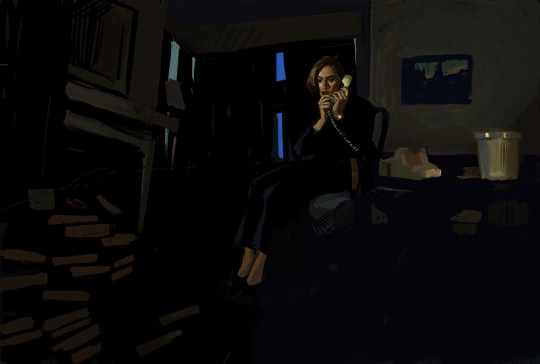

a couple of quick Scully studies that helped me stay sane on a 7,5 hours long flight with a bunch of screaming toddlers (my phone was dead so all I had was my ipad with 4 downloaded x files episodes, each of which I watched twice during the flight)
#i think this is what judeo-christian hell feels like#i wish the people who take their tiny children with them on long flights a very die#the x files#dana scully#artists on tumblr#txf study
683 notes
·
View notes
Text
I’m yet to meet a convert to judaism who’s not transgender. There’s something so trans in the conversion soup. Does judaism not allow cis converts? Did I not know that?
#trans#transgender#lgbt#ftm#mtf#nonbinary#t4t#transsexual#lgbt jews#jew#jewish#orthodox judaism#judeo christian#reform judaism#judaica#jumblr#convert#jewish conversion#jewish convert#jewish history#jewish culture#bestposts
543 notes
·
View notes
Text
When Cain kills Abel he’s like God everyone will know that I’m a murderer and try to kill me. So God stamps his forehead with a sign that says do not kill.
The important part to me though is that there were already other people around. And in fact Cain goes on to meet a wife and found a city.
What does all this mean about the logistics of how humans showed up? I’m not a biblical literalist and I think that most of the Bible is just metaphor so on a spiritual level I don’t care but overthinking this is fun anyways. My personal headcanon is that God took out another one of Adam’s bones and planted pieces of it around to grow more people like a human themed Johnny Appleseed and then a bunch of horny angels also contributed.
#is this a little bit sacreligious?#perhaps#but I have a sense of humor about my religion#religion mention#I mean angels did canonically bang humans#that’s where judeo-Christian demigods come from#and yes the book of Genesis has those
290 notes
·
View notes
Photo

There is no such thing as Judeo-Christianity. But there are groups of people who are deeply and violently dedicated to convincing you, and the world at large, that there is. And with this comes the death of Judaism and the death of Jewish people, so what must come first is the eradication of the terminology, “Judeo-Christian”.
“The "Judeo-Christian tradition” was one of 20th-century America’s greatest political inventions.“
READ MORE
390 notes
·
View notes
Text
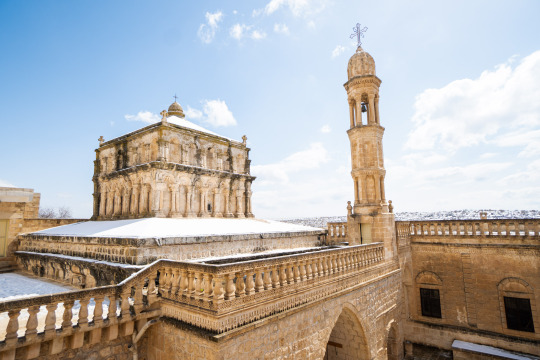
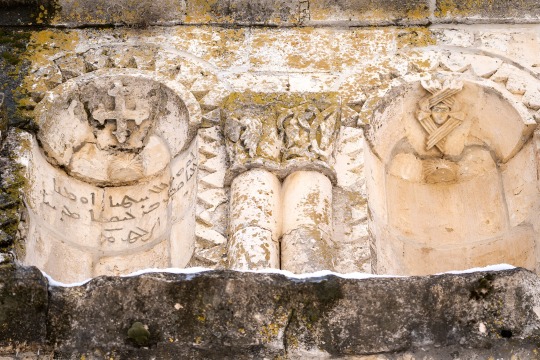

the church of yoldath aloho (the mother of god) in hah in the historical tur 'abin region, located within modern-day turkey. it's thought to have been built around 450 ad and expanded by byzantine emperor justinian in the 6th century, with several additions made throughout the years. the square-shaped dome on the top is unique to the region.
according to local tradition, it was built on a site where twelve kings, following a star to bethlehem, were inspired to do so after witnessing a miracle which proved to them mary's holiness.
#assyrian#architecture#interior#worship#christian#my posts#posting this in celebration of me being able to read the neo aramaic alphabet now#i'm learning judeo neo aramaic a bit which uses the hebrew alphabet but i thought itd be good to learn the other one#i'll probably get familar w/ christian neo aramaic after that ig
41 notes
·
View notes
Text
Just a big reminder that "Judeo-Christian" isn’t a real thing. Judaism and Christianity are two separate religions, and grouping them together when discussing Christianity erases the uniqueness of Judaism and the marginalization of Jews.
826 notes
·
View notes
Text
Blorbo from my children's bible
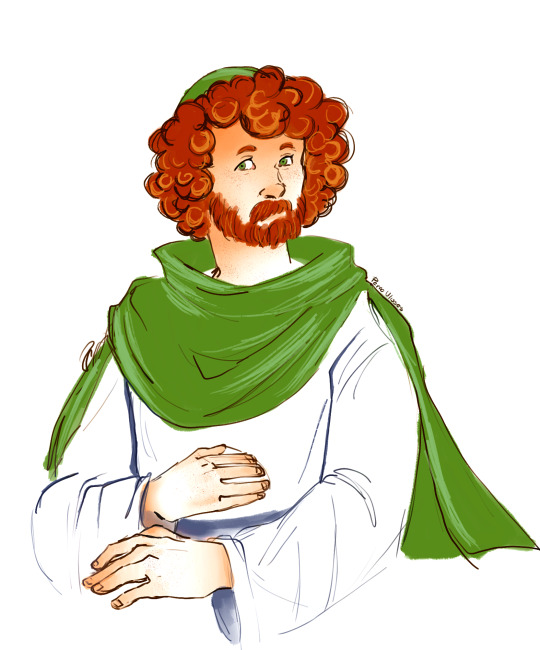
@iroissleepdeprived and i decided that he was so gender that i had to draw him
and I'm not really sure if he's Peter, James, Thomas or Matthew but ok
og under the cut

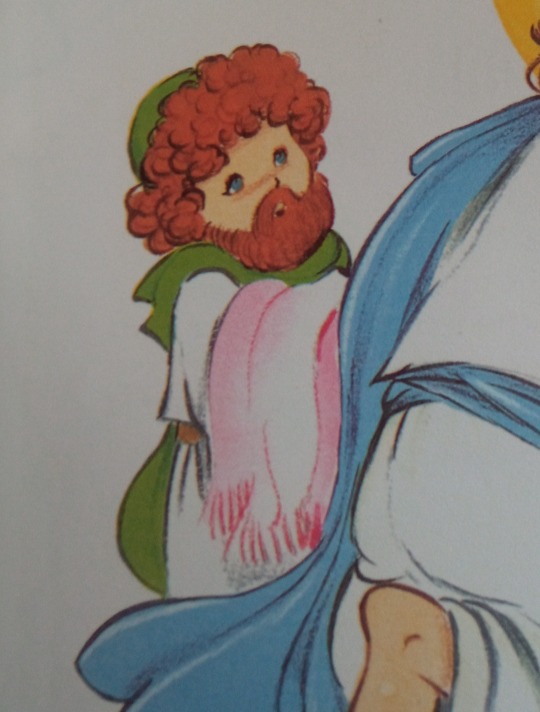
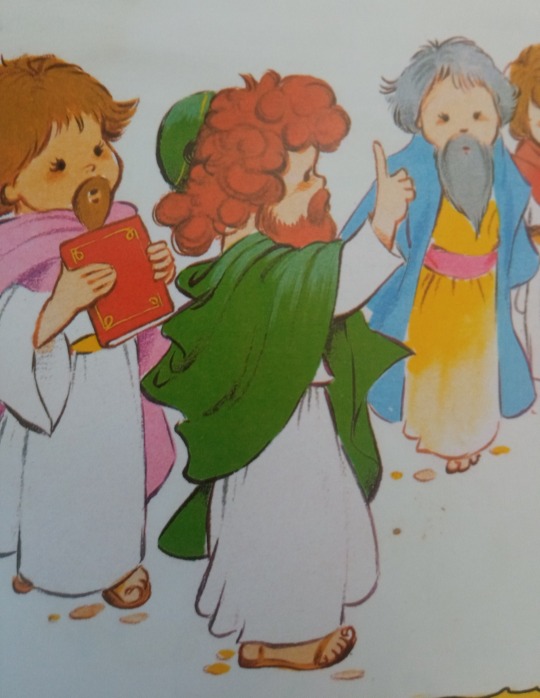

btw the blondie in the first pic I think is John
#bible fandom#art#this is turning in to a Catholic blog wtf#digital painting#shitpost#blorbo#mythology#Judeo-Christian mithology
22 notes
·
View notes
Text
I met god in a cornfield.
You’re never supposed to go into a cornfield alone, ‘specially at night. You don’t know how easy it is to get lost. How easy it is to walk for miles before coming out on some empty road you’ve never seen before, unsure if you’re even in the same universe you were in when the evening started.
I’ve never been good at following the rules. Just ask my teachers at school, my hands end up taped to the desk at least once a week ‘cause I won’t stop tapping my fingers. Or I gotta stay late in detention for chewing gum. I’m bad at following rules, so when the sun went down, down to the fields I went. With nothing but the clothes on my back and my high tops with the worn-out laces.
I skipped off my porch, swatting away mosquitos as I did. The kids at school say boys don’t skip, but they weren’t around to tell me that.
It’s too humid out. I’ve been out for a couple minutes, and my clothes were already sticking to me with sweat. It’s humid, but it’s not that hot. Was earlier, but July cools down quick around here.
In the field, I walked forever. The sun went down, and the corn grew taller around me. I couldn’t see anything but corn, not even the stars above me. I just knew they were there.
The stalks were whispering about me. I heard them, though I don’t know what they said. They just stood there and watched me get lost. I think they get it. The need to get lost. They never can, always rooted to one spot.
But then they stopped talking. Got real quiet and real still, just like my teachers or my moms always want me to. I kept going, pushing through the tall plants that kept on smacking me in the face. Then I saw him. I saw god.
It’s funny. Whenever people draw god they cover his face in a big white light. They say nobody can look upon the face of god.
Well, let me tell you. I saw him lying there in the cornfields. He’d been there for a while, all lonely and forgotten. Rotting. Straw was spilling from the cuffs of his sleeves, and the buttons on his overalls were all rusted up. But his face—
The face of god is rough and weathered. The face of god has seen a lot, I could tell. But not anymore. All he sees nowadays is corn and stars. Maybe the moon.
He seemed sorta empty. Like the things that made him god weren’t really there anymore. I woulda thought he’d seem sadder.
I swung god over my shoulder and kept walking. We walked all night, me and god.
God doesn’t talk much. I had to talk enough for both of us. I told him all about me. I talked about school and my dogs, fingers tapping on my leg as I spoke. God didn’t seem to mind. I talked about my brother and my moms; I told god everything I loved so much that I was trying to get lost from. He didn’t even nod his head, but I knew he was listening. At one point, god seemed a little cold, so I gave him my jacket. Well, really, it’s my brother’s, but he won’t mind. God should be warm, I think.
I walked with god for miles and miles. I wondered about him, why he’d been out here in the middle of nowhere for so long. I asked him, and he still said nothing. I asked the corn, but they still wouldn’t whisper, and I was outta things to talk about. I searched around in my pockets and found a stick of gum. I asked god if he minded, and he didn’t say he did.
When the sun finally started to come up, that’s when we found our way outta the fields. That’s when god saw the sun for the first time. I set him up where he was supposed to be. God shouldn’t be layin’ lost; he should be standing tall and proud over everything, right?
That was that. I started to set off, and god stopped me. God stopped me, said nothing, but knelt down and tied my shoes. My worn-out laces in perfect bows.
(Odysseus from Cottonwood Falls)
#basically this is god as a scarecrow as told by someone who isn't christian but grew up in a judeo-christian household#i have this character in my head of a twelve year old boy who goes to church on sundays but like any twelve year old boy#he's just a boy. not really what the church says he is or wants him to be. anyway.#happy end of july y'all#short story#short stories#writeblr#writers on tumblr#k writes#k rambles#greatest hits
426 notes
·
View notes
Text
"As the world’s first rain begins to fall, the scene ends with Aziraphale extending his wing over the darkly-cloaked Crowley who moves just a step closer to his white-robed companion. Kindness in the face of an absurd world. Friendship extended in tentative hope, light as a feather in an angel’s wing."
A meta for the ages, by an Assistant Professor of Preaching and Worship Leah D. Schade. It's really, really good, go read it now or you won't get any cookies! 🚫🍪
#good omens#good omens meta#religious analysis#judeo christian#crowley x aziraphale#ineffable husbands#aziracrow#consenting bicycle repairmen#air conditioning#aziraphale#crowley
34 notes
·
View notes